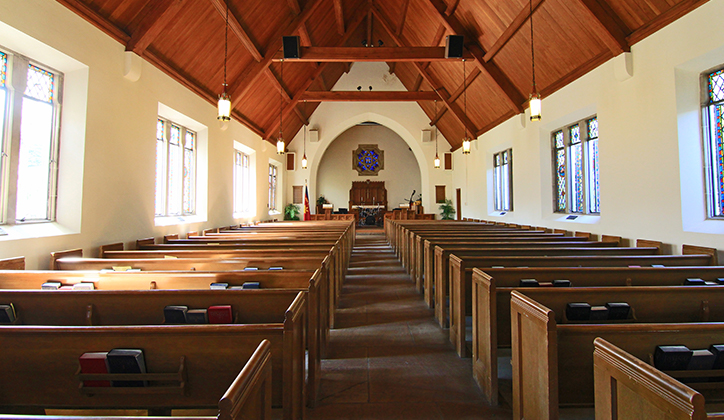It’s the pastor’s kryptonite. Growth stagnates, vision idles and the church stalls. For church leaders, it feels like the jury from heaven has returned with a verdict. “On the charge of being lazy in leadership and pathetic in preaching, we find the defendant guilty on all counts!”
When growth stops, pastors sentence themselves. It’s a vulnerable moment, to be sure. Let’s face it head-on. What should church leaders do when the church stops growing?
1. Listen
I get it. You’re reading this article for “what to do” and my first point—listen—is not very do-ish. Not at least in the way you may hope. When growth stops, pastors often move too quickly to action, mistakenly believing that where a flurry of activity is present, progress is being made. More meetings, more programs, more emails, more vision. None of this is inherently wrong, it just shouldn’t be instinctively first.
Yet our commotion betrays a deeper invention. Tucked somewhere in an enclave of our mind is an unflinching belief that church size is the definitive gauge of our leadership or preaching effectiveness. Under that enslaving burden, the desire to see the church grow is less about stewarding God’s grace and more about staking out an identity. Breaking the next growth barrier means our church remains significant and we remain significant. Growth echoes back to us that our gifts still have game. Yet at last count, there are roughly 10 billion reasons why God may same-size, or even down-size, a local church for a season.
Stanley understood, eventually. His “ministry-is-awesome” mindset took a huge hit the month his church stopped growing. As one month became nine months and then doubled again, Stanley’s inability to kickstart any momentum slowed him down long enough to listen. The questions he began to ponder became X-rays of his soul. What does it mean when my enthusiasm for ministry seems attached to our church’s increase? What does this say about my functional definition of success? If my church never grows again, can I find joy in spending, and being spent, for these souls?
Through the blessed breaking of a stalled season, Stanley became acquainted with a time-tested truth from the God who controls all growth. There are precious and eternal insights that can only be acquired through the exasperation of a stagnant church.
That’s why listening is so important.
If your church size is parked right now, interpret it as an invitation to exit the anxiety jalopy and meet with God. As our gracious heavenly Father, God wants us to draw close and experience the kind of growth that matters most—intimacy with God through the fresh wind of his Word. Don’t delay, start right now. Pray, read, listen, repeat. And as you are listening, ask a couple of questions: Are there ways past growth has pushed you away from intimacy with the Grower? Are there areas where ministry has supplanted identity? See this time of non-growth as a clarion call to grow in God. Don’t make it about discovering strategic ideas that will uncork the growth potion, listen to hear God’s voice; learn to watch and wait; “Be still before the Lord and wait patiently for him” (Ps. 37:7).
And as we grow more intimate with God, something more important than church growth happens. His words become a comfort to our souls, a lamp in our darkness, and a light to our feet. (Ps. 119:105) We learn the secret of contentment so our soul can flourish whether our church is “abounding or being brought low” (Phil. 4: 11–13). God’s peace—the kind that spectacularly surpasses human comprehension—saturates our soul and gladdens our heart.
2. Learn
On to doing, for there are indeed things to be done when your church stops growing. This I know from experience, from times where the church or organization I was leading seemed to settle for too long on Planet Plateau. While every part of me hated coming into that orbit, looking back reminds me that it did provide an important opportunity to humble myself and engage others in a season of learning. My learning.
The “why” behind stagnation is not always readily apparent, but I can think of at least one factory-installed reason for the experience. Stagnation is an invitation by God to humbly learn how your leadership and your church are experienced by others. This is not to assume you’re doing anything wrong. I remember a time when we began teaching a certain doctrine that, in the elders’ view, was essential to the orthodoxy and future of our church. We taught it and some folks hit the exit doors. From the outside, the church went beyond stagnation into a full-scale decline. But our elders understood that, sometimes, a lack of growth may actually mean forward momentum toward health and mission. That’s why it’s never good to impulsively react to a short slide in attendance or over-exaggerate a little stall.
But when your church stops growing over time, consider this action: learn. There are many questions—good questions—that we don’t ask when the metrics indicate things are going well. A good ol’-fashioned plateau becomes a great classroom to bring fresh study on topics that are typically obscured by growth. Here’s a short list to kick-start your thinking. Start with your leadership and preaching, look at the elders’ roles—is everyone in the right seat on the bus? Do the church values truly align with the church culture? Is delegation happening in a healthy way? What do people experience when they visit? Does the church’s vision of success include mission with defined metrics? What is the reputation of the church in the community?
Think in terms of concentric circles of contacts, people who may have perspective into and influence inside the church. Select your best tools to mine their opinions. Here the elders could help. Ask their aid in assembling key questions and essential categories to explore. Humbly and gently approach your wife to solicit her thoughts, then move to church leaders. Have lunch with discerning stakeholders as well as longtime members. See if you can call upon or send questions to community leaders, people who have left the church, folks who visited and did not return, really, anyone who can help inform your view of the church from the perspective of an outsider. Invite the elders to join you in this process.
Don’t waste your season of stagnation. Honestly, it may not result in swelling attendance, but there are more important things to God than whether you are talked about online or in your city. Humble yourself and learn, aware that while God opposes proud leaders who assume their effectiveness, He pours out magnificent grace upon the humble who are confident there is always much to learn (James 4:6).
3. Lead
When the church stops growing, leadership becomes more important. Gone are the attaboys and unquestioned deference effortlessly bestowed during growth. The going gets tough. People assume there is a problem to solve. Sometimes they assume you are the problem to solve. They may poke, prod and pester you with their concerns or theories. The wise shepherd understands that if folks didn’t care they wouldn’t ask. Leadership means he reframes the experience so that the church indexes its success metrics to the things they can control. Planting and watering remain our responsibility. Growth is up to God (1 Cor. 3:6).
Leading when a church stagnates delivers a pastor into a delicate tension. We must humbly assess and even instigate changes. But—and this is so important—this must be done without putting God under any obligation to respond to our efforts. If stagnation were a simple fix, hundreds of thousands of churches around the globe could simply apply the fix and sail confidently towards the new shores of megachurchland. No, leadership means perspective, courage, determination and a war against cynicism.
Stalled growth is also an invitation to revive the church in her mission. Can you point to diverse ways your church is seeking to plant and water with the gospel? Are there ways your people are moving beyond their worlds to welcome others through greeting, hospitality, visits, mission teams, community service—the list goes on. Leading your church towards these blessed efforts is no guarantee for growth. But leading them with no mission beyond themselves is a guarantee for stagnation.
Elders, if your church is stalled, invite people into your own journey with the conundrum. Let them know this is a burden you carry. Describe how the season has tempted you and where you have found hope. Share about how you have leaned upon God and others, even talking about some practices or passages that have proved to be particularly meaningful. Express your faith that God will deliver some strategies that may foster growth. Your honest interaction and godly engagement is not only a humble display of your need for God, but it is also the kind of leadership that incites confidence in others.
Leading plateauing churches will reveal almost every spiritual weakness in your life. It’s not for the faint of heart. But find a pastor content with his church size while still calling his church to mission and you find a man worthy of following.
Looking Forward
Sure, we feel our vulnerability when our church does not grow. But those seasons need not be our kryptonite. As the pastor turns towards God and leads honestly through weakness, he will discover not only success but the remarkable sufficiency of amazing grace. And in the mundane moments where his confidence in God meets the monotony of stagnation, the pastor discovers “God’s power is made perfect in (his) weakness” (2 Cor. 12:9).












